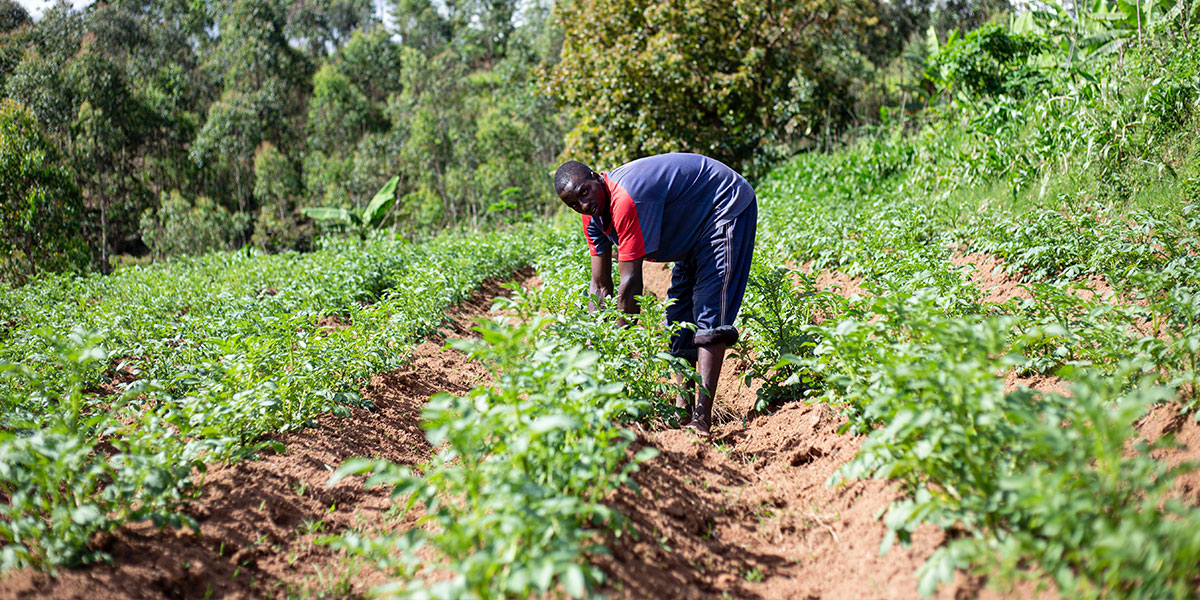In the face of climate change’s relentless onslaught, achieving food security has become a paramount challenge that demands innovative and sustainable solutions. Smallholder farmers, often overlooked yet pivotal players in global food production, possess a wealth of knowledge and time-honored practices that hold the key to climate-resilient agriculture. By embracing climate-smart agriculture (CSA) approaches, these unsung heroes are not only safeguarding their livelihoods but also paving the way for a food-secure future.
The Climate-Smart Agriculture Imperative
Climate-smart agriculture is a holistic approach that simultaneously addresses three intertwined objectives: increasing agricultural productivity, enhancing resilience to climate variability, and mitigating greenhouse gas emissions. By aligning agricultural practices with these goals, CSA offers a sustainable pathway to ensure food security while combating the escalating threats of climate change.
Lessons from the Frontlines: Smallholder Farmers’ Climate-Smart Innovations
Across diverse landscapes and climates, smallholder farmers have been pioneering climate-smart solutions, drawing upon traditional wisdom and local ingenuity. Their experiences provide invaluable lessons that can inform broader efforts towards achieving food security in a changing climate.
- Agroforestry and Soil Conservation Mastery
Smallholder farmers have long recognized the symbiotic relationship between healthy soils and thriving crops. Agroforestry, the age-old practice of integrating trees into farming systems, not only enhances soil fertility and water retention but also contributes to carbon sequestration, mitigating climate change. By meticulously nurturing these integrated systems, smallholders exemplify the harmonious coexistence of food production and environmental stewardship. - Crop Diversification and Rotation Resilience
Faced with the uncertainties of a changing climate, smallholder farmers have embraced the power of diversity. By cultivating a wide array of crop varieties and implementing rotational planting systems, they increase resilience to climate-related stresses, pests, and diseases. This approach not only improves soil health but also reduces the risk of total crop failure, ensuring a more reliable food supply even in the face of adverse weather conditions. - Innovative Water Management Strategies
In regions grappling with water scarcity, smallholder farmers have developed ingenious water management techniques, such as rainwater harvesting, efficient irrigation methods, and the cultivation of drought-tolerant crop varieties. These practices not only conserve precious water resources but also enhance crop productivity and resilience, enabling food production even during prolonged dry spells and droughts. - Community-Based Adaptation and Collective Action
Recognizing the power of collective action, many smallholder farmers have embraced community-based adaptation strategies. By sharing knowledge, resources, and labor, they can collectively implement climate-smart practices more effectively, such as constructing communal water storage systems, establishing seed banks, or implementing early warning systems for pests and diseases.
Scaling Up and Overcoming Barriers
While smallholder farmers have demonstrated remarkable ingenuity and resilience, scaling up climate-smart agriculture practices remains a significant challenge. Limited access to finance, technical assistance, and reliable market linkages often hinders the widespread adoption of these sustainable practices.
Overcoming these barriers requires a collaborative and inclusive approach, involving smallholder farmers, governments, research institutions, and the private sector. Investing in agricultural extension services, facilitating knowledge exchange platforms, and providing financial incentives and market opportunities for climate-smart produce can empower smallholder farmers to embrace these practices on a larger scale.
Promoting gender equality and youth engagement in agriculture is also crucial. Women smallholder farmers often face disproportionate challenges, including limited access to resources and decision-making power. By empowering women and actively involving youth in climate-smart agriculture initiatives, we can tap into their unique perspectives and ensure the long-term sustainability of these practices.
Conclusion: Championing Smallholder Farmers as Agents of Change
As the world grapples with the intertwined challenges of food security and climate change, the lessons from smallholder farmers offer a beacon of hope and a pathway towards resilient and sustainable agricultural systems. By embracing climate-smart practices rooted in traditional knowledge and local innovations, we can not only enhance food production but also contribute to mitigating and adapting to the impacts of a changing climate.
However, achieving widespread adoption of these practices requires a collaborative and inclusive approach, empowering smallholder farmers as agents of change. By providing access to finance, technical assistance, and reliable markets, we can unlock the full potential of climate-smart agriculture and ensure food security for generations to come.
The time is now to amplify the voices and celebrate the wisdom of smallholder farmers, recognizing their invaluable contributions to a food-secure and climate-resilient future.



0 Comments